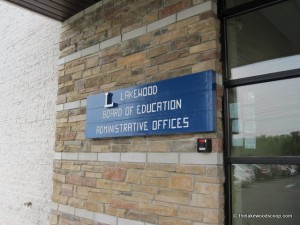 [UPDATED SAT. 8:10 PM] Rutgers University has been awarded $7.8 million by the U.S. Department of Education (DOE) for the first two years of a five-year, $39 million project to help train and reward effective teachers at high-need schools in four New Jersey school districts, including Lakewood School District.
[UPDATED SAT. 8:10 PM] Rutgers University has been awarded $7.8 million by the U.S. Department of Education (DOE) for the first two years of a five-year, $39 million project to help train and reward effective teachers at high-need schools in four New Jersey school districts, including Lakewood School District.
The Teacher Incentive Fund (TIF) grant was one of only 35 grants awarded across the country to improve educator performance by providing evidenced-based professional development and rewarding effective teachers and principals and provide better professional opportunities to teachers in high poverty schools. Funding over the first two years is estimated to be a total of $7.8 million for school districts in Asbury Park, Hillside, Lakewood and North Plainfield. The total cost of Rutgers’ School System Improvement (SSI) is estimated to be $39,705,302 over five years.
“The Lakewood School District is a high poverty school district looking to turn a corner”, said Congressman Chris Smith (NJ-04), who worked with the school district and the university and notified them of the success of their application. “This supportive federal funding will help enable the school board, administrators and teachers to work together in establishing better evaluation systems, professional development programs and appropriate means for rewarding and retaining effective teachers and principals so that Lakewood schools offer a better learning environment for our children. I congratulate both Rutgers and the Lakewood School District. This ultimately is all about the students, and improving the education that can make a difference in their lives.”
TIF grants are designed to invest in effective teachers and principals in struggling schools that face poverty and other educational challenges. The 2012 TIF program promotes the improvement of teacher compensation systems through career ladders or performance-based pay.
Rutgers’ project will implement a comprehensive system that includes educator evaluation. The SSI project seeks to increase the number of effective teachers and principals, and increase student growth in achievement. TLS.

A true accomplishment. My hats off to the new administration.
Keep up the great work and don’t be swayed by comments from people who do not like change. Keep doing the right thing for the children
Hi, sorry to say but will this bring young American Families into our Town that will need and use the Public School System.
Certainly, any influx of funds into our district is good news. Indeed, if this leads to an increase in teacher pay, it is certainly welcome. However, as a matter of statewide policy, the replacement of tenure with merit pay will harm lower income districts and those with large minority populations.
Tenure started in NJ in 1909 to end political control of teachers. Tenure brought stability to schools by securing the positions of veteran teachers, who often become a part of the culture and traditions of their schools, giving them better rapport with students. Stability is important to children, especially in the lower income districts where children have little stability in their home lives.
Low teacher quality is not the source of the achievement gap. Punishing teachers in low achieving schools destabilized the schools and will not close the gap. Rather the gap will be closed through transformational leadership with vision, high expectations, the reform of curricula, professional development of strong implementation teaching, and a relentless supervision of effective district-wide programs of continuous data analysis and remediation.
Data has to be collected weekly, continuously and consistently. All too often, however, data is not used for the purpose of modifying and differentiating instruction, but only as a highly publicized one-time indicator of success, ultimately to the detriment of schools on the bottom side of the achievement gap.
what is wrong with AMERICAN FAMILIES, would like to know , this is AMERICA